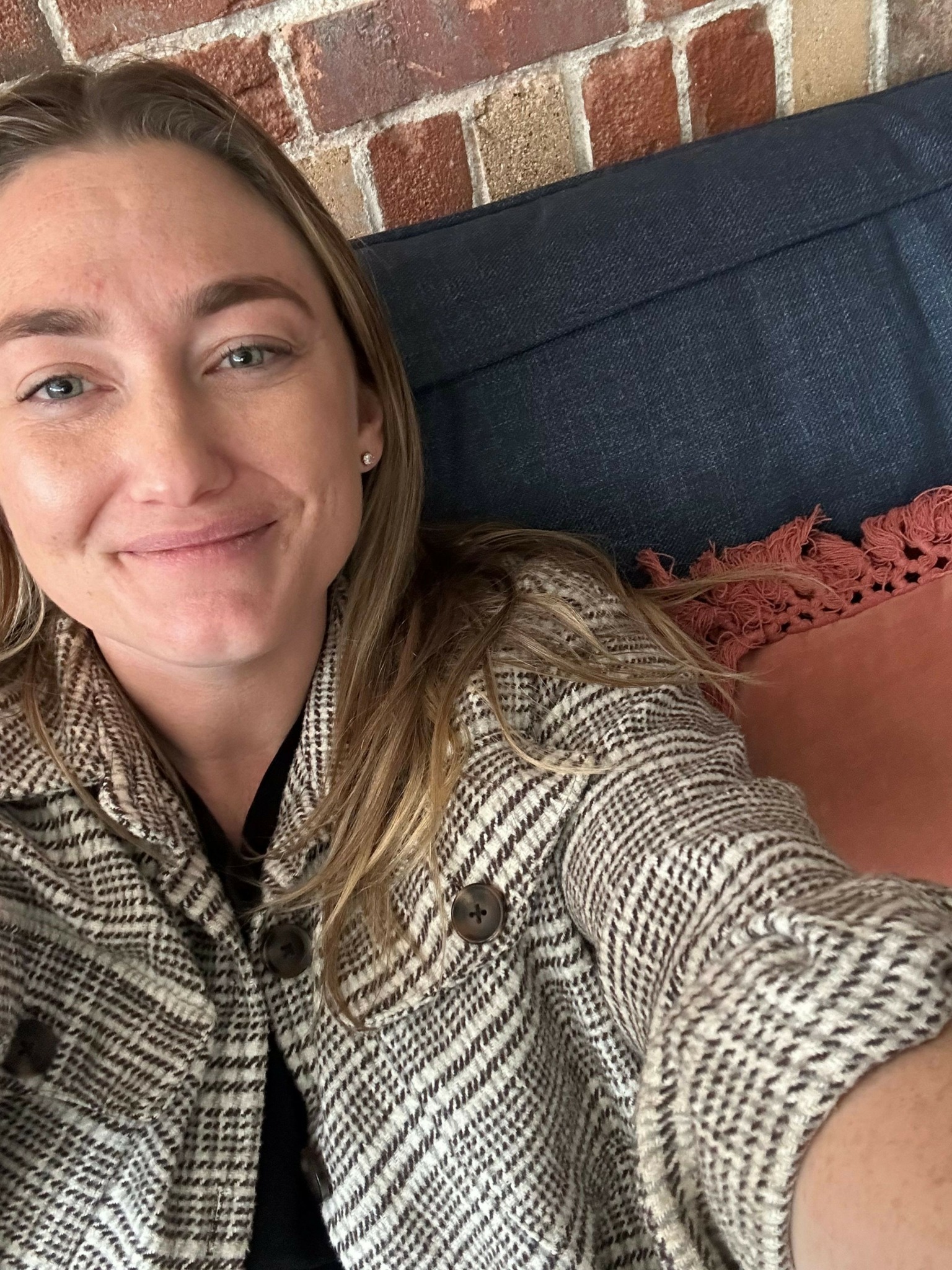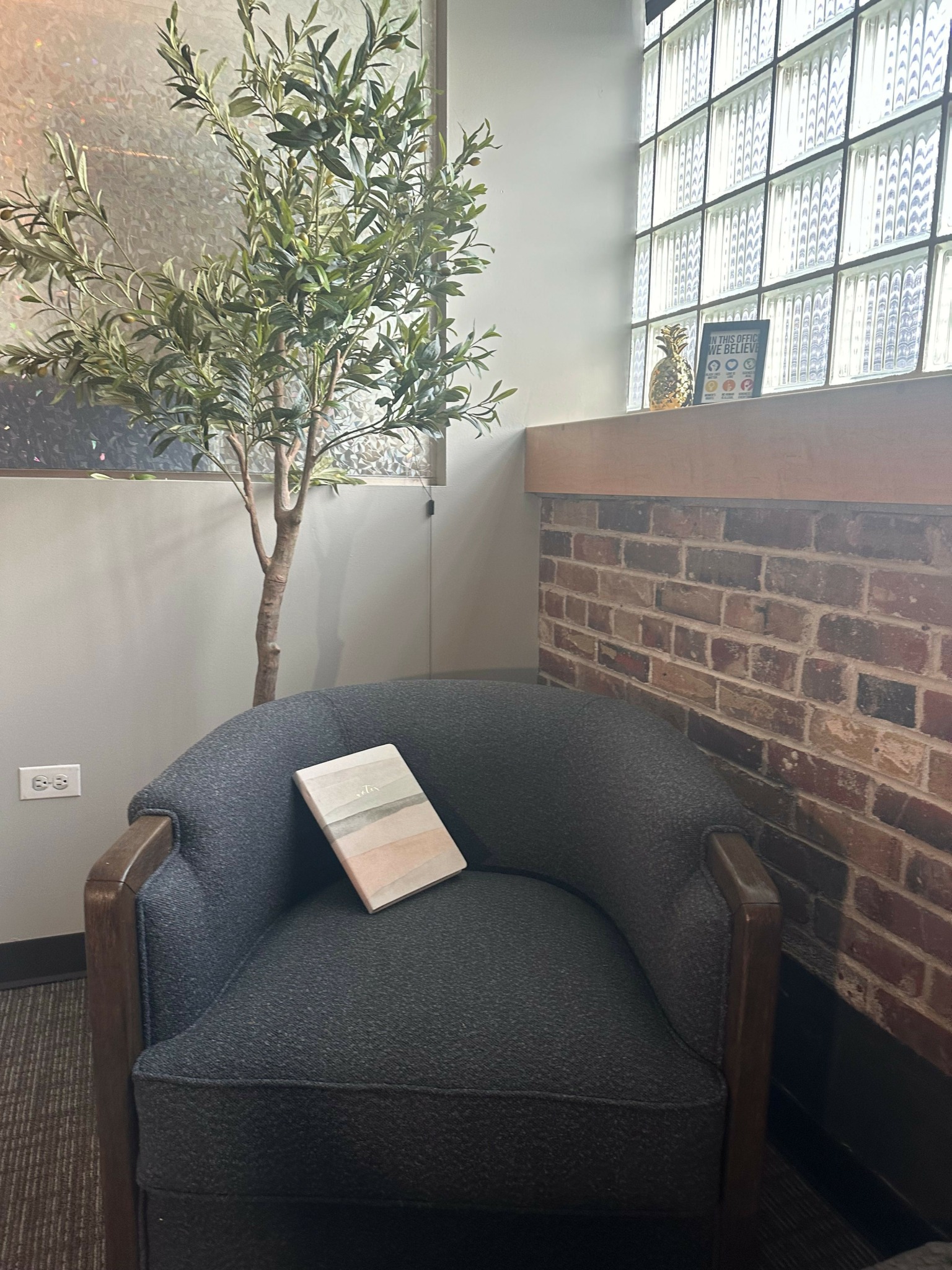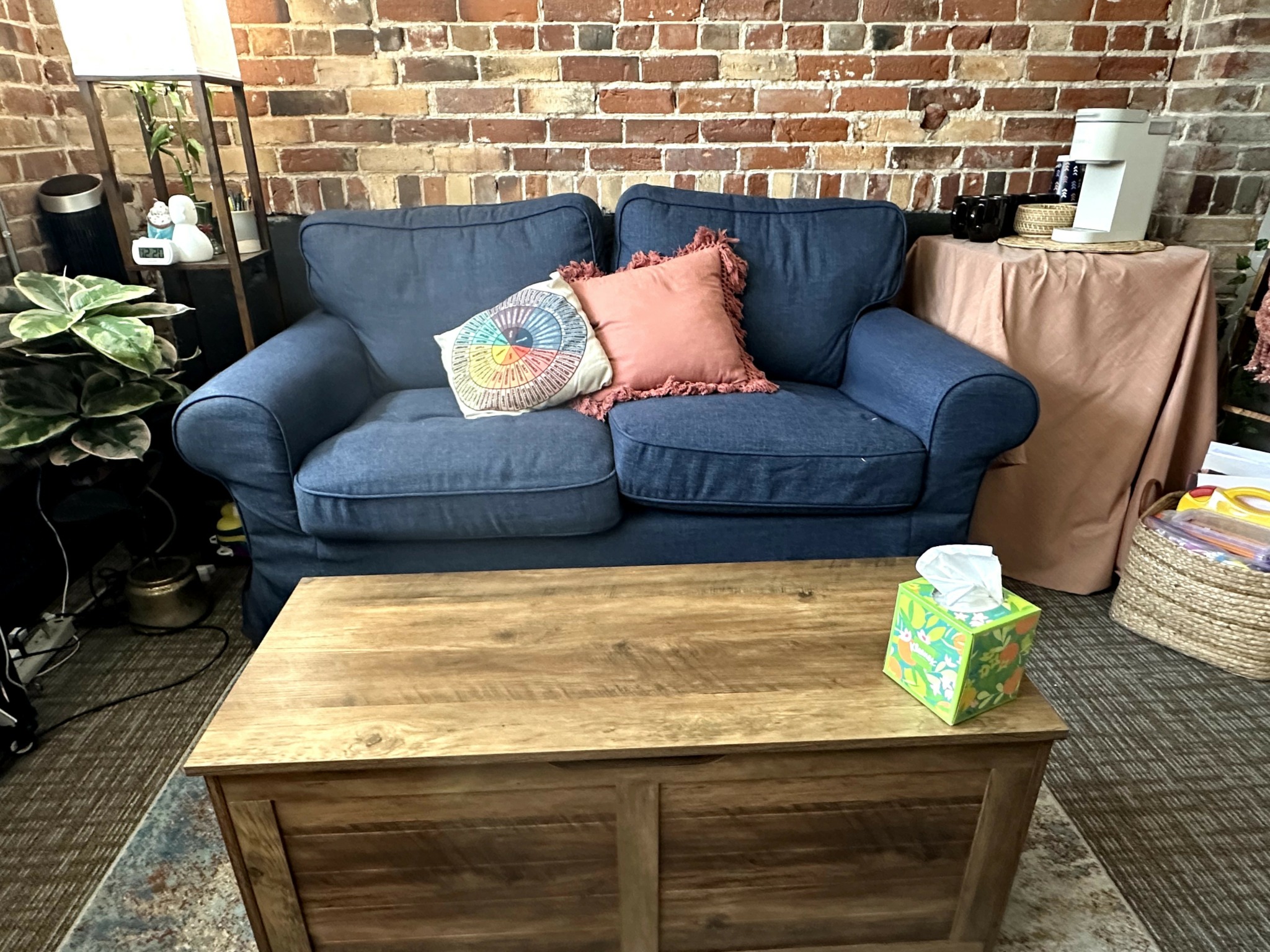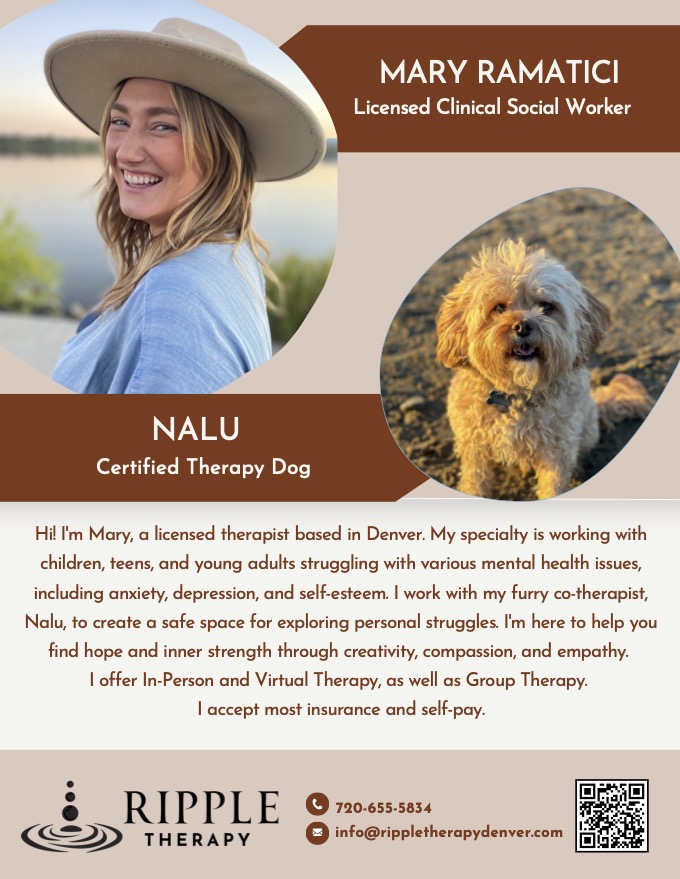We recently connected with Mary Ramatici and have shared our conversation below.
Mary, thanks for taking the time to share your stories with us today Setting up an independent practice is a daunting endeavor. Can you talk to us about what it was like for you – what were some of the main steps, challenges, etc.
Ever since college, I’ve dreamed of opening my private therapy practice, but for years, I had no idea how to make that dream a reality. That changed recently when I officially launched Ripple Therapy in Denver, CO.
After earning my Master’s in Social Work in 2020, I spent several years working in community mental health and group practice settings. During that time, I gained invaluable experience, including providing therapy and working toward my clinical licensure, as well as understanding the behind-the-scenes logistics, such as billing, insurance codes, and the administrative responsibilities involved in running a practice.
It wasn’t until late 2023 that I began to seriously consider starting my practice. I had spoken with several therapists who had taken that leap, and after realizing I no longer felt fulfilled at my group practice, I knew it was time to take my dream seriously. Over Thanksgiving that year, my mom and I spent the entire holiday exploring whether this goal was truly within reach. She even brought out large sheets of poster paper, and together, we mapped out everything—pros and cons, upfront and ongoing costs, private pay vs. insurance, office expenses in Denver, and more. By the end of the trip, it was clear: it was time to go for it. The decision felt both exciting, like I was finally taking control of my career, and terrifying, as I was stepping into the unknown. But every sign pointed toward taking that leap.
Over the next few months, I worked steadily to bring Ripple Therapy to life. I navigated the legal and logistical steps, including applying for an Employer Identification Number (EIN), obtaining a National Provider Identifier (NPI), registering my business name, securing liability insurance, ensuring HIPAA compliance, and developing intake forms and documentation. Each step was a challenge, but overcoming them brought a sense of accomplishment and readiness for the next. From there, I turned to marketing, creating a website and social media presence, listing myself on Psychology Today and TherapyDen, and connecting with other professionals in the community, including therapists, schools, and medical providers. I began credentialing with insurance panels, found an office space, decorated it, and began preparing to transition out of my group practice.
On February 5, 2024, I saw my first client, and from that moment on, Ripple Therapy has continued to grow into a thriving and fulfilling practice. Each new client and each milestone has brought a sense of accomplishment and joy, reinforcing my decision to embark on this journey.
While there are certain things I would do differently with the knowledge I have now, I’m proud of the way I navigated the process. However, one important piece of advice I’d give my past self, or anyone considering this path, is to keep a thorough and ongoing checklist to stay organized and avoid missing key steps. Private practice ownership is not something most graduate programs prepare you for, so much of what I learned came through experience. The pride I feel in my journey is something I hope to instill in others considering this path.
To other young professionals who are thinking about starting their practice: if it’s something you truly want, take the leap. It’s not nearly as overwhelming as it might seem, and for me, it’s been the most rewarding decision I’ve made professionally and personally. I now have the freedom to build the career I’ve always envisioned, with the flexibility and balance that aligns with the life I want to live.

Mary, before we move on to more of these sorts of questions, can you take some time to bring our readers up to speed on you and what you do?
I currently work with clients across Colorado through both in-person and telehealth sessions, offering flexibility to meet individuals where they are, both physically and emotionally. With a background in social work and advanced training in animal-assisted therapy, my practice takes a holistic, client-centered approach. Each session is tailored to the individual to foster healing, build resilience, and cultivate self-awareness.
My journey into this field began with a passion for connection and a desire to help others feel truly seen and supported. This commitment has since evolved into providing compassionate, evidence-based care to children, teens, and young adults as they navigate life’s many challenges. Whether it’s managing anxiety, navigating friendships/ relationships, healing from trauma, improving self-esteem, or building emotional regulation skills, I aim to be a constant and trusted partner along the way.
I am especially passionate about helping clients gain a deeper understanding of themselves, strengthen their inner voice, and acquire skills that will serve them for years to come. What sets my practice apart is the warm, grounded energy I bring to the work, along with the option to integrate animal-assisted interventions to deepen trust, comfort, and connection.
What I’m most proud of is creating a space where clients—especially young people—feel safe enough to be vulnerable, curious, and courageous. It’s a privilege to witness their growth and be part of their journey toward self-discovery, healing, and lasting change.
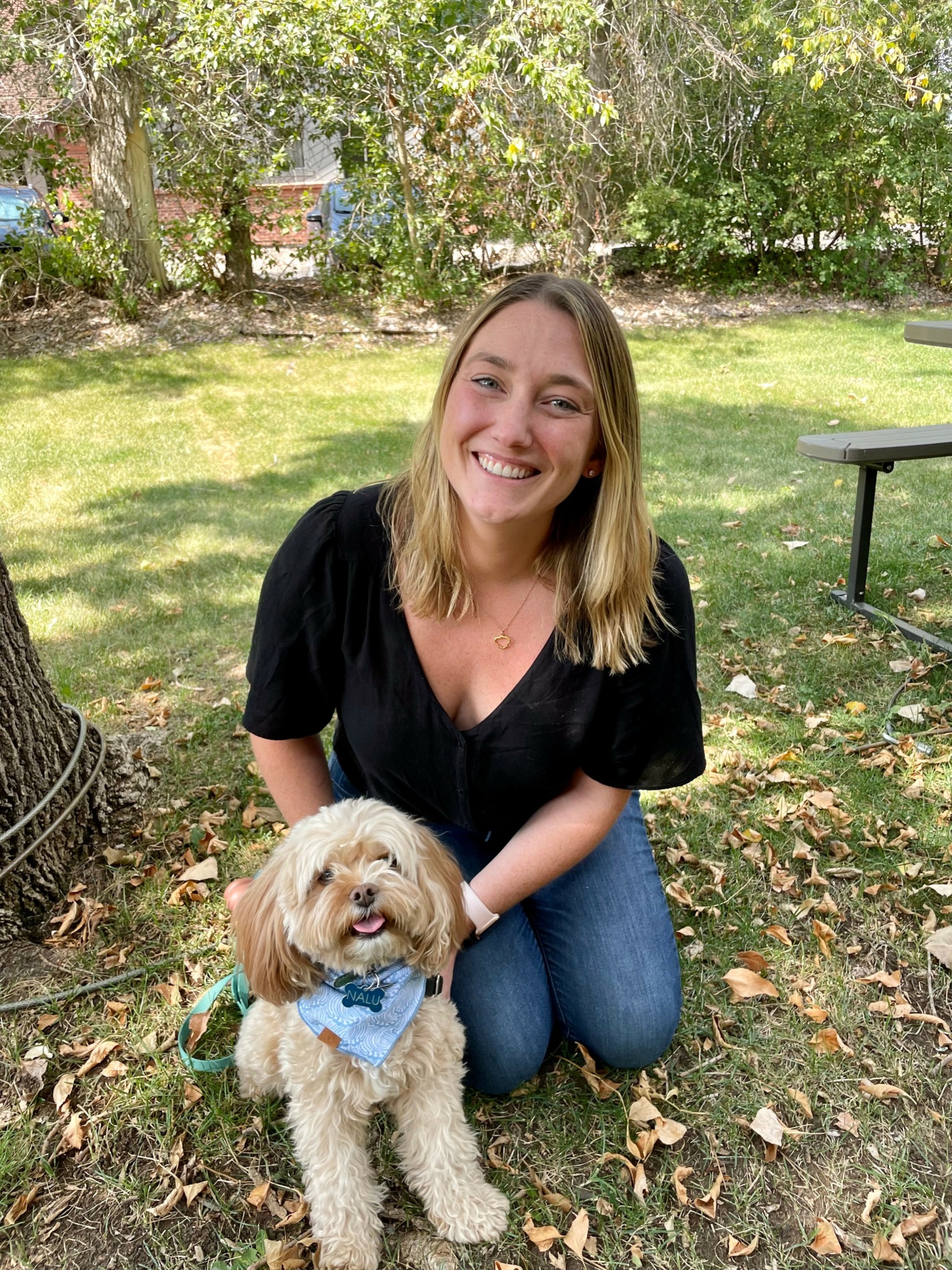
Let’s talk about resilience next – do you have a story you can share with us?
One of the most pivotal moments in my career was when I was forced to reconsider whether I would continue as a therapist. At the time, I was just a year out of graduate school, still working toward my licensure, and employed in community mental health. I carried a caseload of over 100 clients, providing approximately 30 sessions per week, and ran two groups, primarily serving children and teens with high-risk needs. To say I was burned out was an understatement.
“Burnout” is a term we hear often in the mental health field, usually defined as the emotional, mental, and physical exhaustion caused by prolonged and excessive stress. I quickly learned that burnout had become almost a badge of honor, proof that you were working hard and giving everything you had to support others. But for me, it was unlike anything I had experienced before. I was completely depleted.
Eventually, my manager stepped in and advised me to take some time off to rest and care for myself. My mom flew in to be with me, and during those few days, we had honest, challenging conversations about my future and what I truly wanted. I spent time reconnecting with my support system, reflecting deeply, and engaging in the things that brought me joy. Through that process, I came to a clear realization: this is the work I’m meant to do. I love being a therapist, and I didn’t want to walk away from it- just needed to find a better way to do it.
That experience became a defining moment. I made a promise to myself that I would never let it get that far again. I learned that caring for others means I must first care for myself. The boundaries I thought I had were nowhere near what I truly needed. Since then, I’ve made intentional changes to protect my energy, honor my limits, and create a sustainable path forward.
This experience taught me something invaluable: I have a choice in how I show up for this work, and I choose to do it in a way that honors both my clients and my well-being.
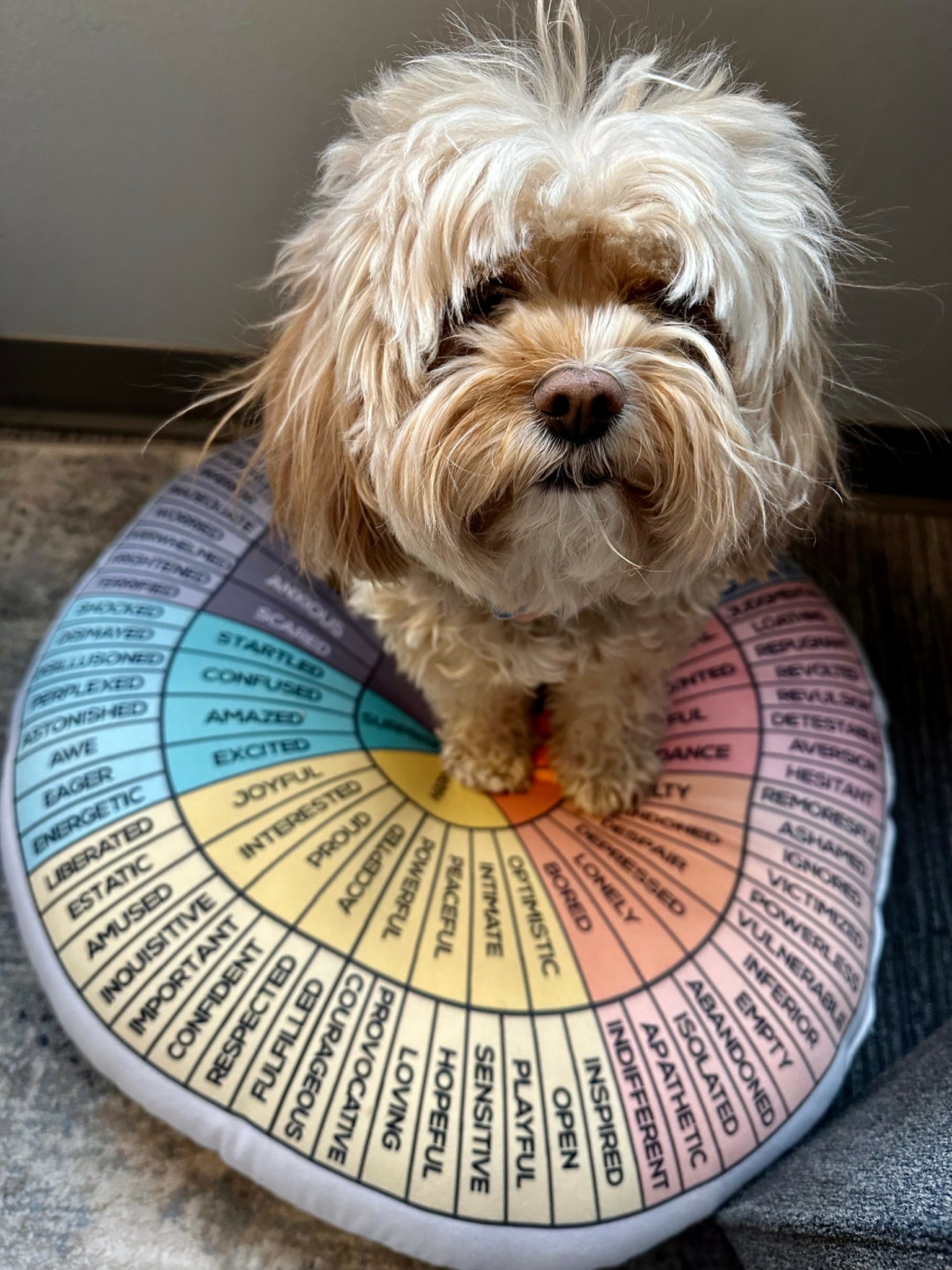
Other than training/knowledge, what do you think is most helpful for succeeding in your field?
I believe that to be truly successful in this field, you must know yourself well and be willing to show up authentically with your clients. Clients can sense when someone isn’t being genuine- you can’t fool them! Early in my career, I began to notice that some of the messages I had internalized from graduate school and workplace culture didn’t fully align with who I was or how I wanted to practice. Once I gave myself permission to question those norms and instead lean into my values, beliefs, and clinical instincts, I found that I was able to connect more deeply and meaningfully with my clients.
I’ve learned that showing up as a whole person while still maintaining the structure and safety of the therapeutic relationship is a powerful approach. I want my clients to know that I’m human, too, that I experience struggles, emotions, and challenges just like anyone else. Of course, I maintain professional boundaries, but I also believe in making appropriate self-disclosures when they serve the work. I often question myself, saying: How can I expect a client to trust me with their most vulnerable thoughts and feelings if I’m not willing to show up with honesty and authenticity myself? Authenticity builds trust, and trust is the foundation for healing.
Contact Info:
- Website: https://www.rippletherapydenver.com/
- Instagram: https://www.instagram.com/rippletherapydenver/
- Facebook: https://www.facebook.com/profile.php?id=61555959631648
- Linkedin: https://www.linkedin.com/company/ripple-therapy-denver/?viewAsMember=true
- Yelp: https://www.yelp.com/biz/ripple-therapy-denver-denver?osq=Ripple+Therapy+-+Denver
